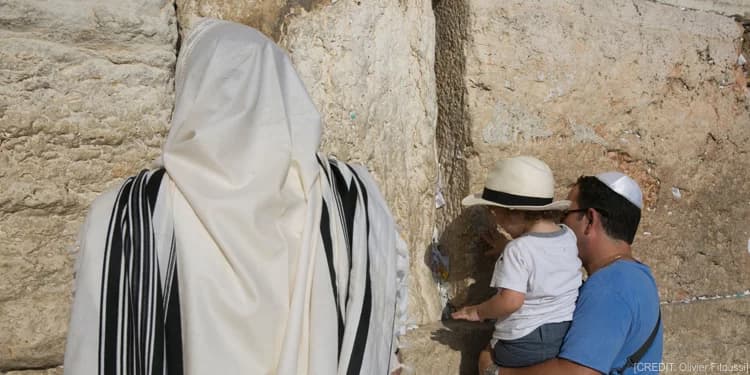Hopeful in the Face of Hatred
Rabbi Yechiel Eckstein | January 19, 2017

Dear Friend of Israel
When I read that a neo-Nazi group planned to stage an armed march to harass the Jewish community in Whitefish, Montana – on Martin Luther King Jr. Day, no less – I wanted to check the calendar. It wasn’t that it was hard to believe that such blatant anti-Semitism was still happening in 2017 (though I wish that was hard to believe), but that the story was so familiar.
In 1978, the Anti-Defamation League sent me to Chicago to help fight the work of the National Socialist Party of America (formerly known as the American Nazi Party), which had planned a march through Skokie, a suburb with a large Jewish population, one in six of them Holocaust survivors. While the ACLU and other groups fought for the NSPA’s right to free speech and assembly, the ADL’s position was that that kind of hatred was not to be tolerated. As I worked against the plans and prejudices of the neo-Nazis, I was stunned by their virulent hatred of Jewish people. I had certainly encountered anti-Semitic beliefs before then, but seeing them at this extreme and organized level was harrowing.
Tragically, that’s a feeling I’ve had countless times over the years when hearing the stories of Jews in many countries where they are still experiencing this hatred, prompting them to make aliyah (immigrate to Israel). I traveled to France on the heels of the 2015 attack on the Charlie Hebdo offices and a kosher grocery store, and was staggered to stand where this unchecked hatred had led to senseless murder. In Ukraine, I have seen swastikas and anti-Semitic sentiments scrawled on apartment buildings and synagogues. In Israel, I have carried young children to bomb shelters when sirens signal incoming rockets, violent evidence of the Palestinians’ hatred of us, their Jewish neighbors. I could go on. Truly, anti-Semitism is, as an author once noted, “the longest and deepest hatred of human history.”
But there’s another parallel between these two marches that gives me hope. Back when I first moved to Chicago to fight the neo-Nazis, I was surprised to see that many in the Christian community were also disturbed and angered by the blatant anti-Semitism on display. They, too, fought against this movement and welcomed my work to promote interfaith unity. As I taught courses on Judaism, spoke at Christian gatherings, and helped organize perhaps the nation’s first Jewish-evangelical conference, I was moved by Christians’ interest in the Jewish roots of their faith and their support of Israel and her people.
I founded the organization that would become The Fellowship back in 1983 to organize and galvanize this support, and in the decades since have continued to be moved by the overwhelming outpouring of Christian support – in donations to help the needy, prayer, and advocacy – for the Jewish state and the Jewish people.
Likewise, before that planned neo-Nazi march in Whitefish, Montana (which was ultimately “postponed” because organizers failed to submit the proper paperwork for a permit), hundreds of other people gathered in the city to show their solidarity with their Jewish neighbors and friends. Not surprisingly, many of those who assembled were pastors and other people of faith.
To me, the takeaway from the events in Whitefish is not that such anti-Semitic hate still exists, but rather that good can come when people of faith – who believe in the same God of peace and love, and who take seriously the psalmist’s words that it is good and pleasant when God’s people live together in unity (Psalm 133:1) – join together to fight it. The existence and work of The Fellowship is a beautiful testament to that.
With prayers for shalom, peace,
Rabbi Yechiel Eckstein
Founder and President
